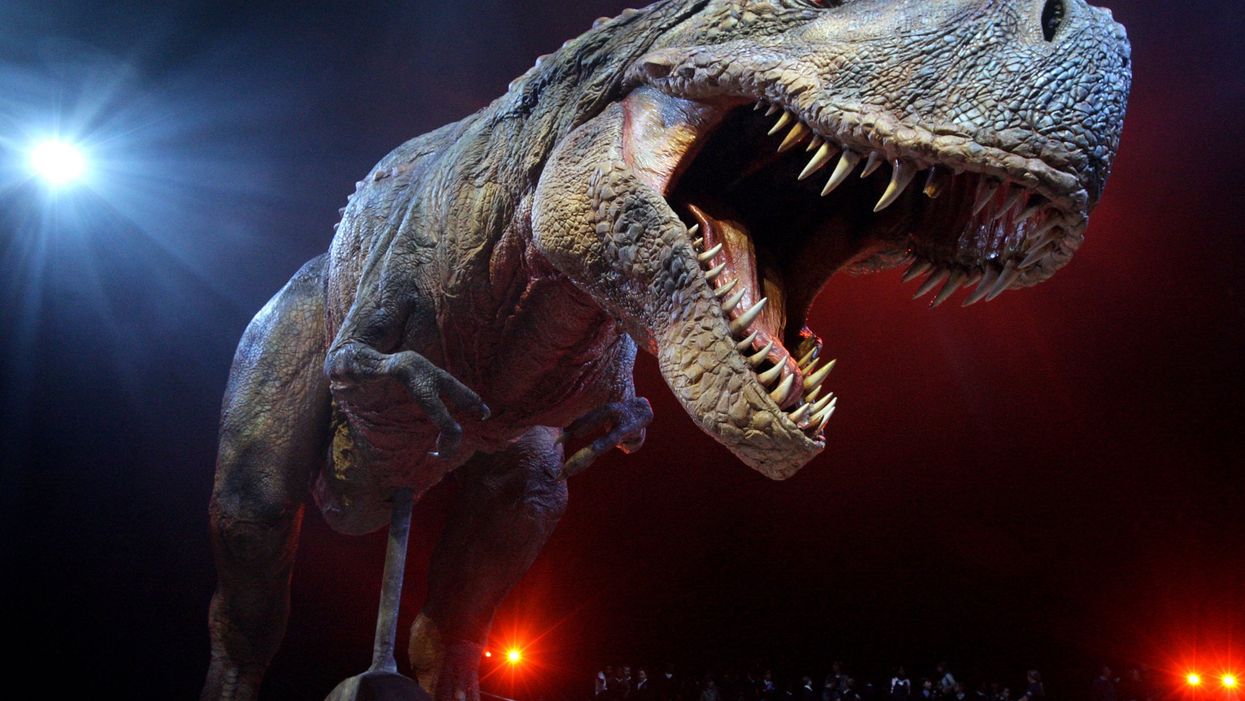
An adult Tyrannosaurs Rex robotic dinosaur - that is not real
Dinosaurs lived between about 245 and 66 million years ago, and are, I hope we can all agree, long dead.
Turns out, a surprising number of Americans believe they still roam the Earth today. We’ve one question - where do they think they’re hiding?
A recent OnePoll survey asked 2,000 Americans if they believed that dinosaurs may still exist in remote areas of the world, 46% of them said “yes, definitely”.
A further 22% of them said “yes, possibly” and only 33% of respondents correctly said no.
Perhaps they thought Jurassic Park was a documentary...
It was 66 million years ago when dinosaurs went extinct but apparently most of the Americans survey do not believe this to be true.
Only 10% of respondents correctly said when they went extinct.
Elsewhere, there was a wide range of incorrect answers:
- 23% said the extinction happened 2,000 years ago,
- 21% said 100 years ago,
- 18% responded 10,000 years ago
- 13% said 3 million years ago.
And 15% said that it was none of the above. Yikes.
Despite these inaccurate guesses, most were able to recognise a tyrannosaurs rex.
However, an astounding 60% think there was a dinosaur called the “doyouthinktheysarus.”
More people thought this was right than wrong - so let’s just take a second to appreciate that.
The survey was conducted in May this year and was released in time for International Dinosaur Day on June 1 on behalf of Boat Rocker Studio,s who are releasing a children’s animated series on dinosaurs.
But it looks like adults need to watch the show to brush up on their dinosaur facts, going by most of the answers in this survey.
Though, parents are seemingly self-aware that their children are more knowledgeable than them when it comes to the prehistoric reptiles.
With 41% of parents believing their child knows more about dinosaurs than them and 35% said their child knows somewhat more about the creatures.
Meanwhile, just 7% said their child knows somewhat less than them while just 6% said their child knows much less.
Looks like the kids should be teaching the adults a lesson.













